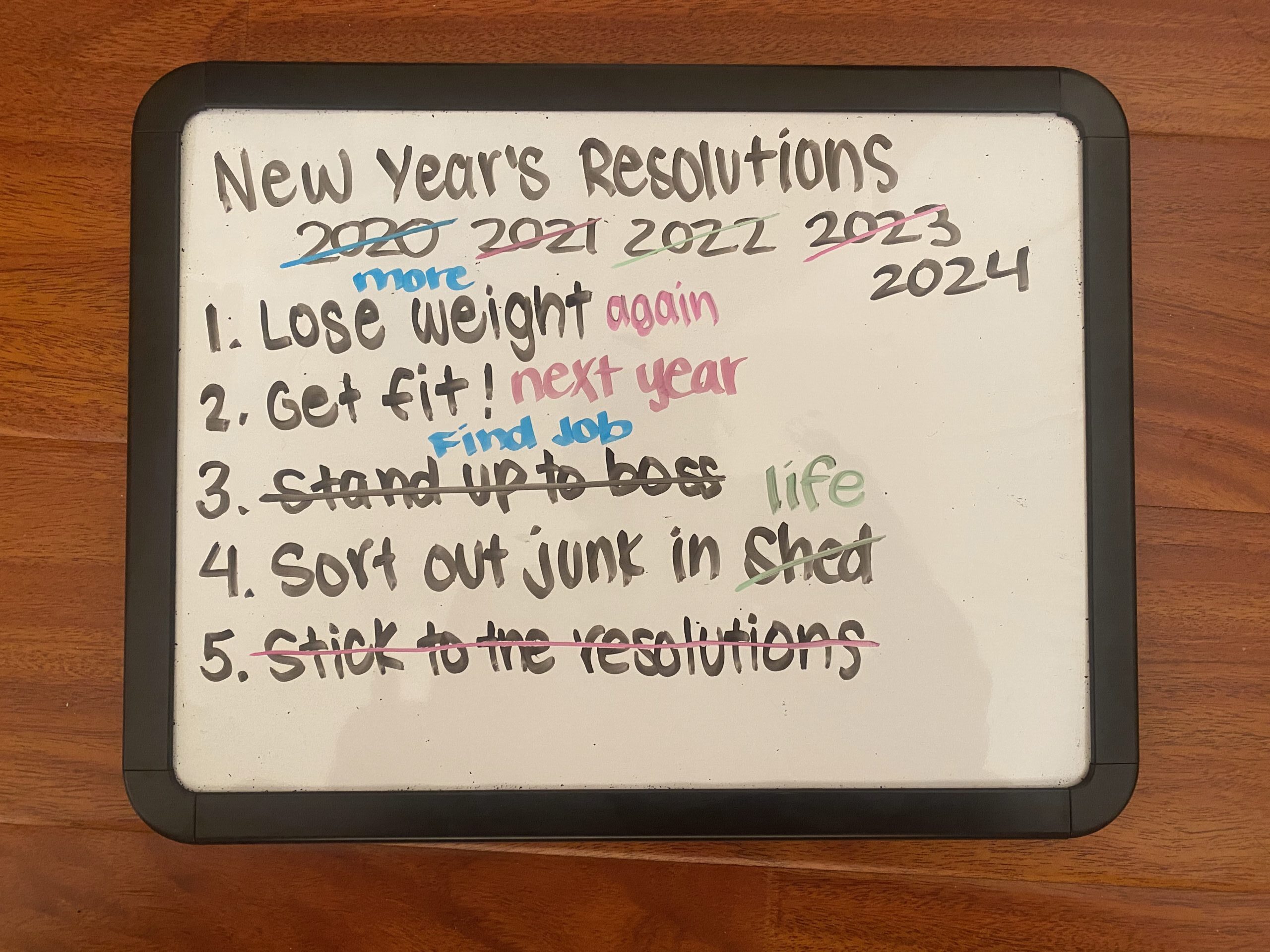Image: by author
Every January, millions of people across the world decide that this is the year they’ll get fit, start saving money, or finally start using that gratitude journal. Yet, by mid-February, gyms are emptier, savings accounts are almost empty, and the journals meant for daily appreciation are gathering dust. Why? Because calling it a “New Year’s resolution” might be setting you up to fail before you even begin.
Let’s look at the first issue: resolutions made solely because the calendar changed are hollow. The end of December brings pressure to “start fresh” and this timing makes your goal feel a lot less meaningful. If you weren’t ready to make a change in November, why would January make it easier? Goals that come from external pressure simply lack the drive needed to stick with them and stay consistent.
The second problem lies in how we frame these goals. Calling your goal a “New Year’s resolution” makes it feel like a tradition instead of an actual plan. It gives you an idea of who you want to be in the future instead of focusing on where you are now and what steps you can take from there (even if they’re small steps). Without proper motivation or realistic expectations, even small challenges can lead to giving up your goal entirely.
This brings us to the issue of mindsets. Resolutions encourage all-or-nothing thinking. For instance, if you decide to write in a gratitude journal every morning but miss a day or two, you might feel like you’ve already failed and give up. As students, a common resolution we hear or have even made ourselves is deciding to study a certain subject every night. A lot of students slip up after a few weeks and give up the goal entirely, whether that’s a result of a new show coming out on Netflix or chores piling up at home. Instead of seeing progress as a journey with ups and downs, New Year’s resolutions make it a matter of success or failure.
Resolutions also carry the emotional baggage of previous failures. Thinking about how many New Year’s resolutions you abandoned in the past can create self-doubt and mental blocks. These negative memories make it a lot harder to believe in your ability to achieve goals. On the other hand, setting normal everyday goals avoids these bad memories.
Finally, the way that New Year’s resolutions approach creating change creates a big problem. Real growth and change simply does not follow a calendar. Pursuing a goal is an ongoing process of reflection and adjustment. By deciding a goal on January 1st, you delay taking action and create the idea that progress only happens at certain times. Resolutions make it seem like you have to wait for the next new year, but in the real world every single day offers a chance to improve yourself.
So, what’s the solution? Don’t bother creating arbitrary New Year’s resolutions. If you have a goal then start now. Don’t wait for Sunday, the first week of the month, or next year. Goals don’t need a special day. They need commitment, consistent effort, and the determination to get through challenges.
Isha Kannan is currently a junior at Washington High School. She was born in Santa Clara, but has been living in Fremont since she was four. This is her second year working on The Hatchet and she currently holds the role of Opinions Editor. In the past, she has covered a variety of different topics such as health, new years resolutions, school programs, and more. She is excited to help new journalists with their writing and article ideas! Beyond writing, Isha loves going to debate tournaments, reading classic novels like Jane Eyre, parasailing, and practicing calligraphy. She is also one of Washington’s three SURFBoardE student representatives. In the future she hopes to go to university!

